|
Free-roaming cats — which include feral, stray and outdoor cats — can carry parasites and diseases that threaten the health of humans and other species. From the spread of a “brain-altering” parasite that causes toxoplasmosis to rabies, encounters between cats and wildlife can have devastating consequences.
Today in The Conversation Canada, Amy Wilson and Scott Wilson at the University of British Columbia show that in areas with higher cat populations, both human and wildlife are negatively affected. Free-roaming cats should be regulated, and not only for the health of other species, but also for their own welfare, as they can “suffer from increased mortality through traumatic injury, disease, neglect and abandonment.”
Also today:
All the best,
|

|
Nehal El-Hadi
Science + Technology Editor
|
|
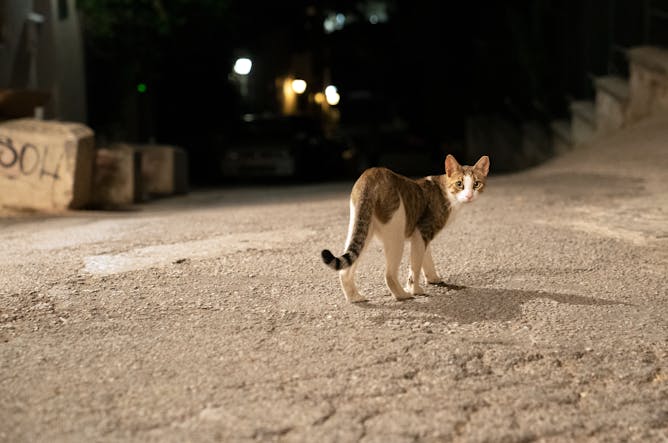
Domestic cats are allowed to roam can transmit parasites and diseases to humans and wildlife.
(Shutterstock)
Amy Wilson, University of British Columbia; Scott Wilson, University of British Columbia
Allowing cats to roam unsupervised is detrimental to humans, wildlife and the cats themselves. Managing free-roaming cats should consider the risks they pose to other species.
|
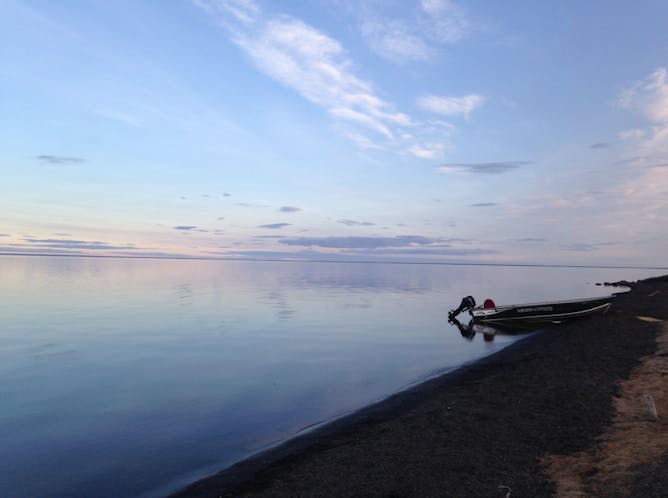
Midnight sun over Great Bear Lake, after feeding the lake, a way to honour the water.
(Mylène Ratelle)
Mylène Ratelle, University of Waterloo; Jessie Yakeleya
Access to safe water means more than building treatment plants: A study sheds light on water consumption and perceptions of water in Indigenous communities in the Northwest Territories and Yukon.
|

The sound of the marine environment has been underestimated, mainly because it is not audible to the human ear.
(Shutterstock)
Thomas Uboldi, Université du Québec à Rimouski (UQAR)
The ocean is often considered a silent universe. But many recent studies highlight the importance of the soundscape for many marine species, both large and small.
|
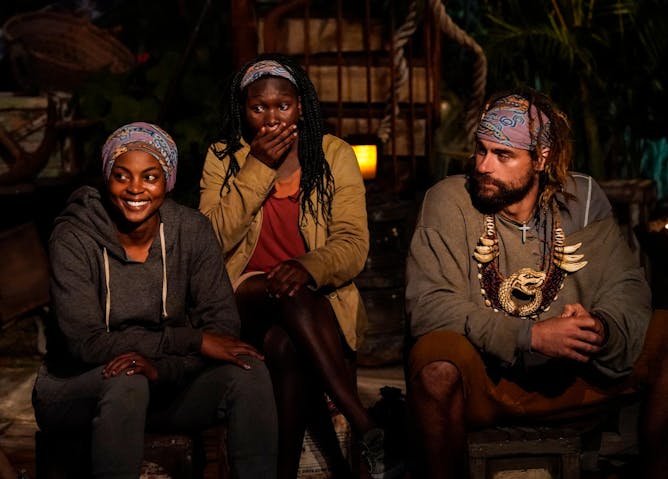
In Season 42, Episode 9 Drea Wheeler pointed out that Black players get voted off before white players which opened up a discussion about race.
(SurvivorCBS/Twitter)
Teresa Anne Fowler, Concordia University of Edmonton
This is not a drastic approach or a political agenda, but a call to open up spaces for conversations about racism, about whiteness, about race with white people listening and not centring themselves.
|
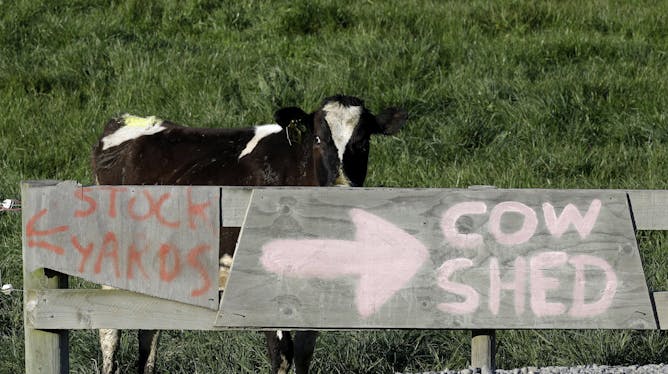
A cow waits in a paddock after milking on a farm near Oxford, New Zealand. New Zealand exports 95 per cent of its dairy products, and is challenging Canada’s protection of its dairy market.
(AP Photo/Mark Baker)
Noah Fry, McMaster University
New Zealand is accusing Canada of undercutting its commitments under the Comprehensive and Progressive Trans Pacific Partnership on dairy. Canada’s problem is that New Zealand’s case is strong.
|

Figuring out which foods garner more social media engagement will help restaurants and food content creators determine how to better amplify the reach of their online content.
(Shutterstock)
Matthew Philp, Toronto Metropolitan University; Ethan Pancer, Saint Mary’s University; Jenna Jacobson, Toronto Metropolitan University
New research using AI finds that trendy, unique-looking foods generate less social media engagement than traditional, normal-looking foods.
|
La Conversation Canada
|
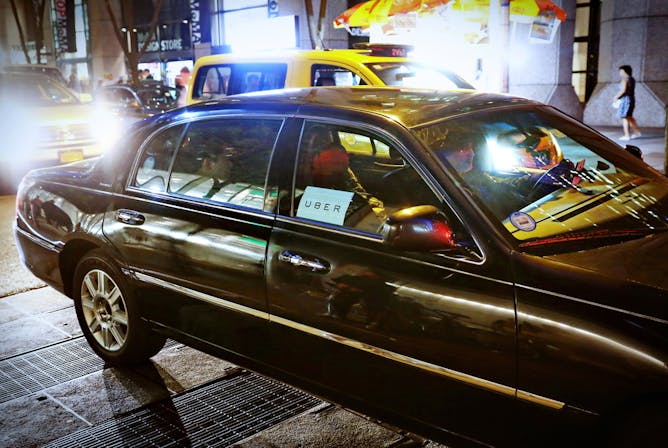
Le modèle Uber entrave toute possibilité de collectif, annihile tout pouvoir d'agir des chauffeurs et génère chez eux d'importants phénomènes de dissonance cognitive.
(Shutterstock)
Lucie Enel, Université du Québec à Montréal (UQAM)
Les chauffeurs Uber doivent gérer seuls le paradoxe entre la rhétorique d’Uber (flexibilité, liberté, autonomie) et leurs conditions de travail parfois difficiles.
|
Ukraine Invasion
|
-
Christoph Bluth, University of Bradford
Treatment of POWs by Ukraine and Russia is breaking international rules.
-
Kseniya Oksamytna, City, University of London
Atrocities are made easier when one country’s troops are taught to despise the people they are invading.
-
Patrice McMahon, University of Nebraska-Lincoln
Uninvited and inexperienced visitors arriving with good ideas and wads of cash can take time and energy away from what displaced Ukrainians want and need.
|
|
COVID-19
|
-
Gemma Dale, Liverpool John Moores University
About two-thirds of generation Z seem to want a hybrid working pattern in the future.
|
|
Culture + Society
|
-
Matthew Valasik, University of Alabama; Shannon Reid, University of North Carolina – Charlotte
White supremacist groups seek to solidify their control over the US by changing the government, sometimes by violence.
|
|
Politics
|
-
Mark Satta, Wayne State University; Claire Leavitt, Grinnell College; Ken Hughes, University of Virginia
The House committee investigating the Jan. 6, 2021 attack on the US Capitol held its first hearing to present what it has learned during its almost year-long probe. Three scholars analyze the event.
|
|
|
|
| |
| |
| |
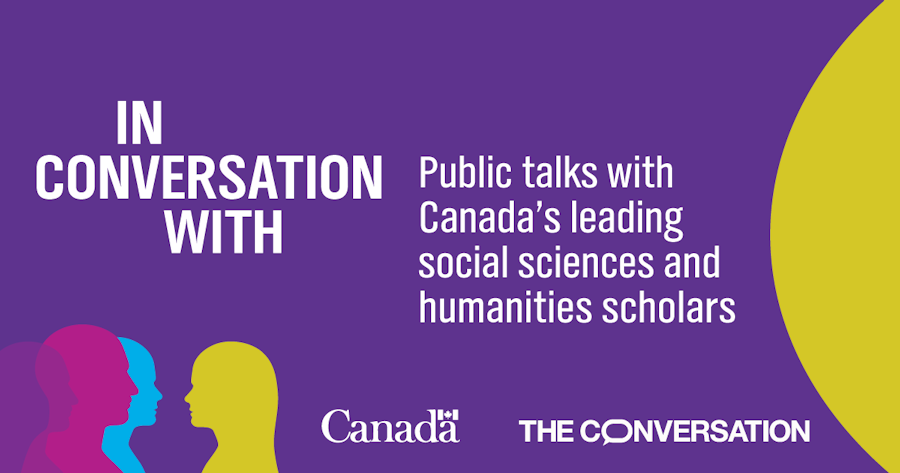
|
| |
| |
| |
| |
| |
| |
|
|